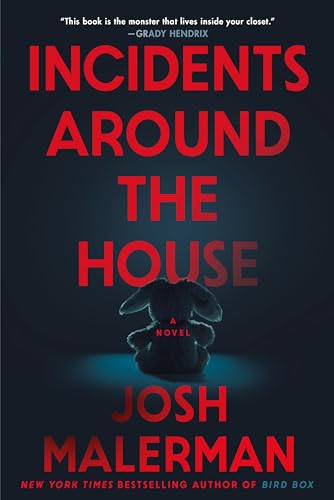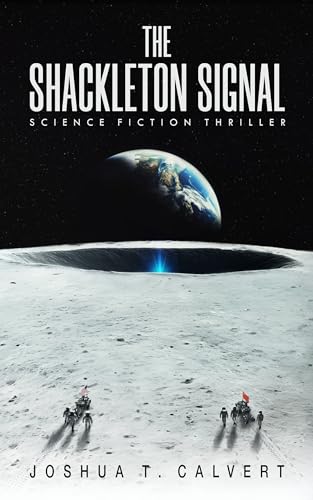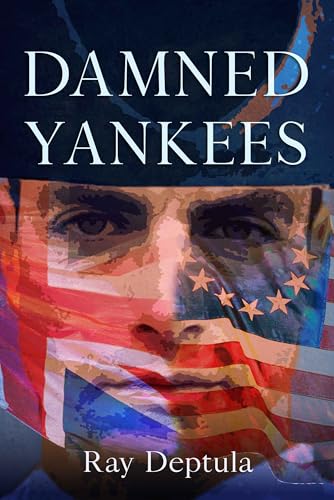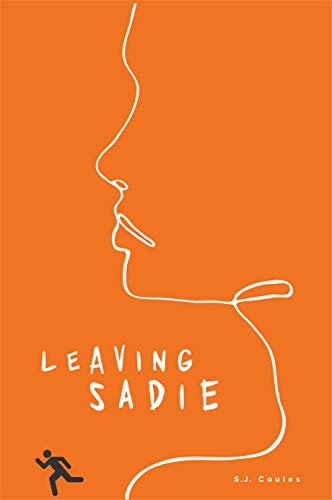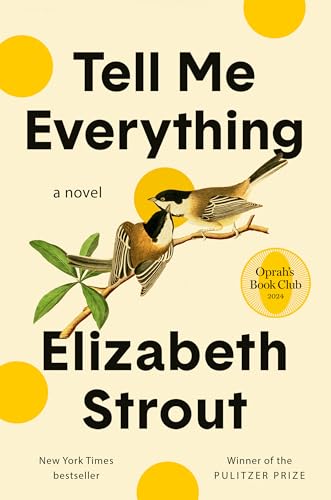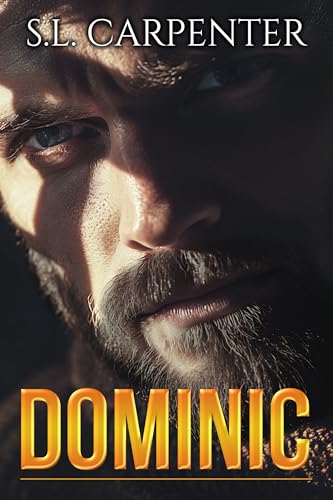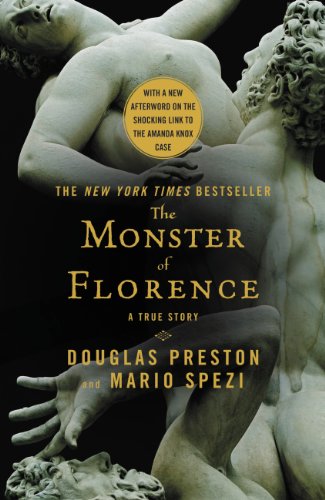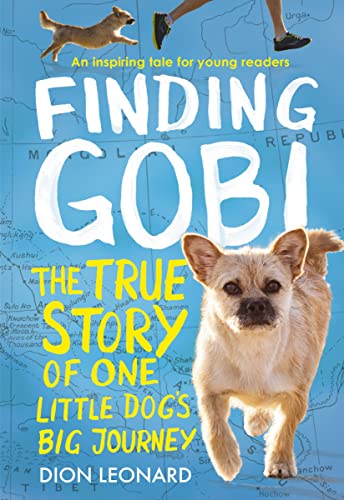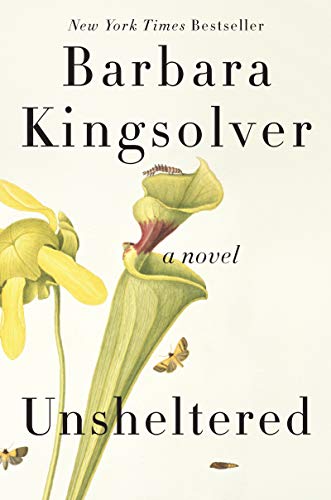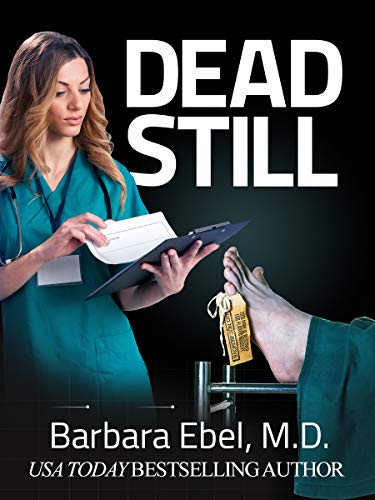Now we’re back to offer our weekly free Thriller excerpt:
148 Rave Reviews
On Sale! Everyday price: $3.99
Text-to-Speech and Lending: Enabled
Here’s the set-up:
Reverend Samuel (Preach) Preston is a full-time Christian evangelist traveling the country preaching the gospel of Jesus Christ. But Preach is on a mission — a mission to re-create the martyrdom of the original apostles of Jesus Christ. To his family he is father and grandfather. To the Christian world, he is a dedicated man of God. But to FBI agents Duncan Morris, Lynn Keller, and George Benjamin, he is a serial killer they must stop before he can kill again.
And here, for your reading pleasure, is our free excerpt:
Prologue
Reverend Samuel “Preach” Preston was making good time. He’d pulled out of Denver at 4 o’clock Wednesday morning and reached Cheyenne, Wyoming in just under two hours before catching the I-80 west toward Utah. His Newmar Dutch Star motorhome was running perfectly after receiving her complete checkup and calibration, and he could not have asked for a better day to be about God’s business.
Interstate 80 was long, wide, and straight with very few curves or other distractions. But Preach’s mind wasn’t on the scenery. Instead, he thought about his mission and if he’d be able to complete the next sacrifice sooner than he’d originally scheduled. Would the Lord provide a suitable martyr this week, or would he make him wait for the second week of November which was three weeks away?
Preach thought about the other sacrifices he’d made over the last six months. He had biblical or historical precedence for all of them. He knew there were a few apostles later on his list whose deaths were not recorded in either the Bible or in history but he figured the Lord would provide the answers for those when he got to them. He only hoped the Lord would not find fault in his method of sacrifice, and he hoped his conscious would let him forget the pain and suffering he’d inflicted for the cause of Christ.
Now here it was October already. He thought back to August when he met Philip Carroll, a tenor traveling with a southern gospel quartet. He’d seen an advertisement about the group singing at a church in Hot Springs, Arkansas, not too far off the I-30 South on his way to Texarkana where he’d preached a night at a small country church before heading west to Abilene, Texas. He’d decided to stop and listen to the group and maybe hear some good old-time southern gospel music instead of the contemporary drivel his son’s worship center played in Denver. Preach knew Philip Carroll was God’s choice when the group’s leader introduced him and said he was originally from Bethesda, Maryland. Preach remembered thinking that it couldn’t be a coincidence.
Philip Carroll turned out to be an excellent sacrifice, and all of the pieces fell into place. Ancient church history confirmed that the Apostle Philip was originally from Bethsaida near the Sea of Galilee, and that he’d died by crucifixion at the sacred Greek city of Hierapolis, Turkey. As all biblical scholars know, Hierapolis gained its reputation as the city of health, or the city of healing because it sat on top of Turkey’s hot springs which was believed to contain miraculous healing powers.
And now Preach found himself listening to a man with very similar attributes to the original apostle in a location reminiscent of the biblical record. Surely God had provided this sacrifice and even the opportunity to abduct Philip Carroll after the concert when he’d been alone near their motor coach.
Sacrificing Philip had been a simple affair. He didn’t have time to explain his mission and to pray with Philip the way he’d done with his previous martyrs. But holding to tradition, he wanted to be authentic to history, so when he’d nailed Philip to a tree in a secluded area of Hot Springs National Park in Hot Springs, Arkansas and crucified him, he believed the Lord accepted his sacrifice and would honor his mission. Even though the park is located in the city of Hot Springs, it had taken the Hot Springs police department two days to find Philip’s body. By that time Preach was almost five-hundred miles away and had left no trace of his identity.
Nathan Bartholomew in September had been a completely different kind of sacrifice. According to church history, the Apostle Bartholomew had preached in Armenia with the Apostle Jude around 60-AD. The only record of the Apostle Bartholomew’s death was that he’d been flayed to death in 68-AD in Albanopolis, which is now called Derbend, on the west coast of the Caspian Sea. No other record of his ministry or death existed. With exception to a short missionary trip to Turkey and India, even a record of his early life is mysteriously absent from all historical documents. The only thing that qualified Nathan Bartholomew as an apostolic sacrifice was his name.
The death of Nathan Bartholomew still haunted Preach, which was why he detested the cat-of-nine-tails stored in his cargo compartment. The sound of the whip whistling through the air, and the slap of pain as the leather straps embedded with nails and glass ripped into Nathan’s flesh caused Preach many sleepless nights. He remembered the pieces of flesh, Nathan’s flesh, still embedded on the nails when he’d inspected his supplies a few days ago, and he could still hear the boy’s screams echo in the New Mexico desert night. He recalled Nathan’s body ripped to pieces by the terrible weapon, and the blood that soaked his own hands, arms, and clothing when the whip tore into the soft flesh of God’s martyr. And although history didn’t bear record to it, the boy had been in so much pain that Preach decided to stab him in the heart to help end his suffering and buried his body in the desert outside of Albuquerque, New Mexico. He hated what he’d done, but he loved God and was willing to do anything to fulfill his mission and to make his calling and election sure.
Preach thought about the road the Lord had set before him. He didn’t understand it but the vision and voice of God was clear. Why had the Lord chosen him out of the thousands of ministers preaching his word to recreate the martyrdom of the original apostles of Jesus Christ and to restore order and discipline to the modern church? Wouldn’t a man with a wide national or international audience have been a better choice? But God’s thoughts are not my thoughts, and God’s ways are not my ways. The mysteries of eternity will only be revealed in eternity.
Chapter One
The preacher rested in his RV watching the young man sitting alone at a picnic table at the I-40 rest area in east Oklahoma just inside the state line. He had met the young man at the vending machines almost an hour ago. His name was Thomas. He didn’t know Thomas’s last name but that didn’t matter. He only cared about his first name. He’d learned that Thomas was a pilgrim from Boston on a cross-country odyssey to find enlightenment at a new-age colony in California. Thomas didn’t have much money, and his family had refused to buy him a plane or bus ticket for the journey they called ludicrous. Why travel all the way across the country to find enlightenment if you can’t find it in your own hometown?
Thomas stood up from the table and secured his backpack straps over his shoulders along with his sleeping bag and a lightweight single-man tent. The preacher watched Thomas toss his empty coke can and vending machine sandwich wrapper into a nearby trash can. Neat kid. The boy can’t be any more than 24 or 25-years-old. Probably some spoiled rich kid out to prove how stupid his parents are. He had spoken to the drifter at the vending machines but didn’t spend too much time with him. He didn’t want to run the risk of another motorist at the rest area associate them together when someone would eventually find Thomas’s dead body somewhere further down the road.
Thomas cleaned the top of the picnic table then started walking toward the westbound exit ramp of the rest area. The preacher watched the young man pass several cars nosed in along the curb, never once stopping to speak to any of the other travelers. He turned up the sidewalk toward the visitor center building and disappeared inside, apparently to use the restroom before getting back on the road. He reappeared a few minutes later, and with exception for holding open one of the heavy glass doors for a mother with two small children, didn’t speak to anyone.
The preacher watched Thomas amble down the sidewalk past the remaining parked cars and a row of semi-trucks lined up at the far end of the parking lot. Any other hitchhiker would have asked a few of the truck drivers for a ride but Thomas just kept walking, his head bowed into the westerly wind that had kicked up in the last few minutes. Low clouds had drifted in as well and it looked like it might rain. That boy is gonna be lookin’ for a dry place before long.
Thomas walked the quarter mile to the end of the interstate entrance ramp before turning around to try his luck at hitchhiking again. Or was it exit ramp? He could never figure it out. Was he entering the interstate or exiting the rest area? He guessed it really didn’t matter as long as he could catch a ride. He’d left his parents’ home in Boston almost a month earlier and spent three weeks with his uncle in Charlotte, North Carolina. He’d left Charlotte six days earlier on his trek across country and had slept in his one-man tent and sleeping bag every night except for one night in Tennessee when a park ranger in the Great Smokey Mountains National Park had run him off for not having a camping permit. He’d spent that night behind the buttress under a highway overpass. There hadn’t been room under the bridge to pitch his tent, but he’d been relatively comfortable. At least the weather was warm and the place was dry.
Rides across country during his first few days on the road had been hard to catch. He knew when he’d started out that people were leery of picking up hitchhikers, especially easterners who have an inherent nature of distrust. But now he was in the southwest, at least he assumed Oklahoma was in the southwest, so rides had been a little easier to catch. He’d flagged down an old man in North Carolina that had taken him as far as Knoxville, Tennessee where he’d hooked up with a cattle-truck driver at a greasy spoon roadside diner. The trucker dropped him off in Nashville just west of the city where he’d met the park ranger and spent the night under the overpass.
His luck ran out in Nashville and he was unable to catch a ride at all for two days, so he’d walked at least twenty miles along the I-40 before a family in a minivan took pity on him and picked him up. They gave him a ride through Memphis and into Arkansas where they dropped him off in the middle of nowhere when they exited to their home. From there he’d managed to catch sporadic rides with single drivers and truckers until he ended up at the rest area he’d just left. He’d spent last night at the Oklahoma rest area and now he was ready to get back on the road.
Leaving the rest area and coming toward him was an RV that Thomas had seen parked across the grassy area from him while he’d been sitting at the picnic table. The RV wasn’t like the typical boxy Winnebago campers he’d seen parked at lakes and roadside campsites. This one looked more like a bus with a flat front and large front windows. The headlights were slung low just above the front bumper. Thomas thought he saw two air conditioner units on top of the vehicle. He could tell it was a luxury coach but not something a millionaire would drive.
When the RV drew closer, Thomas recognized the driver as the old man he’d met at the vending machine that morning. He didn’t recall if the man had told him his name or not, but he recognized his face. He started to raise his right hand, thumb up, when he saw the right turn signal of the RV begin to blink. He saw the man behind the wheel smile and wave at him. The RV slid past Thomas on the shoulder of the interstate and stopped smoothly, settling down with a whoosh of air brakes and a swirl of dust. A silver 2005 Ford Focus three-door hatchback was attached to the back bumper of the RV. The words Newmar Dutch Star were painted on the back of the camper.
Thomas reached the door of the RV and was just about to twist the handle when the door opened and the old man stood on the bottom step. “It’s a long walk to California.”
“Yes sir,” Thomas answered. “And it looks like it might rain.”
“Might rain? You kiddin’? This is Oklahoma. You can bet your life it’s gonna rain.”
Thomas laughed as he shucked the straps of his backpack off of his shoulders. “Hand that up here to me,” the preacher said, “so we can get on the road before a state trooper gives me a ticket for stopping on the shoulder.”
“How far are you going?” Thomas asked.
“Straight through to Albuquerque. You still heading for Los Angeles?”
“Yes sir.”
“LA,” the preacher repeated. “The city of angels.”
“Yes sir.”
The preacher stowed Thomas’s backpack in a closet next to a small cook stove covered with a ceramic top, then stepped back down onto the shoulder of the interstate highway. He opened a storage compartment on the side of the RV and told the young man to secure his tent and sleeping bag inside. “You’re Thomas, right?”
“Do I know you, sir?”
“We met at the vending machines this morning. Remember?”
“Yeah, I remember. I just don’t remember telling you my name.” Thomas stuck his hand out to shake hands with the preacher. “Thomas Waverly.”
The preacher accepted the young man’s hand. “My name is Sam Preston, but my friends call me Preach,” he said, shaking Thomas’s firm grip.
Thomas noticed the old man’s right arm. It was permanently curled inward at the elbow, ending with his wrist in a stiff ninety-degree angle. His fingers were flexible but his hand was hard and clawed.
“Preach?”
“It’s what I do,” the older man said. “Preach.”
“Preach what? Sermons? Stuff like that?”
“Yep.”
“You’re a priest?”
“That’s me,” the preacher laughed. “The old sermon-preachin’ priest of the road. Maybe I should get me some business cards printed. I could be like Roger Miller, except I’d be the Priest of the Road instead of the King of the Road. What’cha think?”
“Roger who?”
“You don’t know who Roger Miller was? King of the Road? Do Wacka Do?”
“Do Wacka what?” Thomas hoped he hadn’t hitched a ride with some kind of nut. But if so, he could always get out and catch another ride, maybe not all the way to Albuquerque but at least for a ways. Besides, the RV was cool and dry and pointed in the right direction. He would decide the rest further down the road.
“You ready to go?” the preacher asked.
“Yes sir.”
Thomas followed Preach into the RV. Preach turned and locked the door. Thomas saw that it was neatly maintained. There were no dirty dishes in the sink, and the table and countertops were wiped clean. The furnishings were upholstered in white leather. Even the windows were free of road grime and dirt, and the Berber carpeted floor had been recently vacuumed.
Thomas looked at the old man settling into the driver’s seat and hoped he hadn’t hitched a ride with some old traveling pervert that would try to make a homosexual advance at him tonight. He’s old. I can probably handle him if he does.
“You might as well ride up front with me unless you need to take a nap or something.”
“No sir, I’m good.” He’d already used the restroom that morning and he had no intention of sleeping in this strange man’s vehicle.
“There’s cold drinks in the fridge,” Preach said as he prepared to get the RV moving again.
“Beer?”
“Sorry, no beer. Just soda pop and juice. That sort’a thing.”
The preacher appeared to be in his mid-to-late sixties. Thomas estimated his height at around five foot six or seven, and his weight at about one-eighty. His complexion was ruddy from apparent extended exposure to the elements. He had a full head of gray hair, heavily sprinkled with black from his youth the way he remembered his own grandfather’s hair.
“This is a nice camper,” Thomas said as he dropped down into the passenger seat across from the old man. The preacher nodded and pulled the RV back out onto the I-40 heading west. “My grandpa has an old Winnebago but it’s nothing like this rig.”
“It’s home,” Preach said. “I started to buy a Winnebago but I wanted something with a little more class.”
“Well, this is sure it.”
“Yeah, Newmar makes a pretty nice coach,” Preach said. “It’s nice enough to be comfortable, yet not so fancy as to look like I’m putting on airs.”
Preach guided the RV into traffic and set the cruise control on 65 miles-per-hour. “I get my best mileage at sixty-five,” he said, “which is easy to remember since that’s my age.” Thomas noticed a mischievous grin cross the old man’s lips and figured his leg was being pulled.
“And this is your home?” Thomas asked.
“Yes sir. I live in it year round.”
“You live on the road?”
“Most of the time,” Preach answered. “I’m an evangelist.”
“Evangelist?” Thomas said, unsure what an evangelist was.
“I’m a traveling preacher. I travel from town to town preaching revivals at local churches and camp meetings, that sort of thing. And if a pastor somewhere needs a vacation, sometimes I’ll babysit their church for them for a week or two while they’re away.”
Thomas watched the old man behind the steering wheel. He didn’t see any sign of malice or danger in the old preacher.
“So where you coming from?” Preach asked.
“Boston.”
“Boston? That’s a far piece from LA.”
“Yes sir.”
“How do you happen to be on the I-40 if you’re coming from Boston? Seems like you should’a come down through Illinois and Iowa, then out through Colorado, Utah, and Nevada.”
“I’ve been staying with an uncle in Charlotte, North Carolina the last few weeks, but that got old, so I…”
“So you took off on your own across country to California hoping to find your place in the sun,” Preach cut in. “That about it?” Preach smiled at the boy.
“That’s pretty close,” Thomas agreed.
“You got a job or school waiting for you out there?”
“No sir. I’m just going. I had to get away from stuff at home.”
“Stuff? What kind’a stuff could cause a young man like you to leave home and hearth and head out on his own?”
Thomas wondered why the old man was asking so many questions then reasoned that he was just making conversation. After all, if he lived in this RV year round and spent all of his time on the road, there’s no telling how long it had been since he’d had anyone to talk to for any length of time. Thomas laughed. “Oh, just family stuff. My dad is a lawyer and mom is a doctor, and I’m a college dropout. I just don’t seem to measure up.”
“Brothers and sisters?”
“I have a brother in the Army. He’s a platoon commander in Afghanistan right now. My sister goes to Harvard Law.”
“And you want to live your own life; do your own thing. Is that it?”
“Pretty much,” Thomas answered. “I don’t want to fit into anyone’s mold or be a cookie-cutter doctor or lawyer. There’s got to be more to life than that.”
Preach kept his attention on the road. Rain had begun to pour and visibility had lessened to only a few hundred feet. “You were sure right about the rain,” Thomas said, looking out the windshield at the sudden downpour.
“Yep, and we’re just as likely to run out of it and into bright sunshine in the next mile or two,” Preach answered. “I’ve driven across this state hundreds of times, and if there’s one gospel truth, it’s that if you don’t like the weather in Oklahoma, just wait a minute and it will change.”
The two men spent the rest of the day talking and enjoying each other’s company. Thomas felt safe with the preacher and told him many details of his life, including his strict Catholic upbringing and his parent’s obsessive adherence to all of the churches rites and rituals.
“So you really are a doubting Thomas, aren’t you?” Preach asked.
“Who?”
“Thomas. You know, from the Bible.”
“Never heard of him.”
“Your family is strict Catholic and you don’t know who Thomas was? The patron saint of architects?”
Thomas shook his head.
“He’s called Doubting Thomas because after the resurrection of Christ he demanded proof that Jesus had risen from the dead, so Christ allowed him to touch the wounds in his hands and side to prove that he was the resurrected Messiah.”
“I never paid very good attention in Sunday School,” Thomas said. “It never made much sense to me.”
“What’s that?”
“All that praying to the saints and to Mary and to all the others,” Thomas answered. “After all, they were people just like us. And now they’re all dead, so why pray to them?”
The preacher nodded. The kid had a point. He’d never fully understood the Catholic propensity to deify the apostles and disciples, or even historical people that had played a significant role in Christianity. “You say your last name is Waverly?”
“Uh-huh. Just like the cracker.”
“Oh, it goes deeper than that,” Preach said. “Waver is another word for doubt. You truly are a Doubting Thomas.”
Thomas saw the old man smile. “You’re kiddin’, right?”
“No, I’m not kidding. You can look it up yourself.”
“How do you know all this stuff?”
“I spend a lot of time studying and praying, that sort of thing,” offered the preacher. “Thomas is the patron saint of architects. He was also called Didymus, which is Greek for twin. Are you a twin?”
“Nope, just me.”
“Hmmm, that’s odd,” Preach said. “Perhaps your parents thought you’d build or design something when you grew up.”
“So I’m a doubter and an architect, and I’m supposed to have a twin?” Thomas said. “Well, I doubt if I’ll ever be an architect. And I sure as hell don’t have a twin. Does that count?”
“I don’t think so, but it’s food for thought.”
“Architects! What kind’a foolishness is that?”
“I think it has more to do with Thomas’s ability to build churches and to organize people,” Preach answered. “According to tradition, after the death, burial, and resurrection of Christ, the apostles separated and scattered out into their individual ministries. Thomas left Jerusalem and preached in Asia in Parthia and that part of the world.”
Preach glanced across the RV at Thomas to see if the boy was paying attention. “Even today he’s highly honored in India.”
“Do tell?”
“He ended up in India at a place called Calamine where he was killed by a lance. He’s buried at a place called Edessa,” Preach said. “I’ve been there. I went with a church group on a mission’s trip last year. Barbaric place. Dirty. You wouldn’t believe it. I even brought back a special souvenir–a lance just like the one used to kill Saint Thomas.”
“Calamine? Like the lotion for poison ivy?” Thomas asked.
“I suppose so.” Preach laughed. “But I don’t think a little pink liquid would help a stab wound, do you?”
“No, I suppose not,” Thomas answered. Preach watched the drifter. He’d kicked off his shoes and stretched his legs out in front of him. This kid is perfect. And I have everything I need stored down below for when the time is right.
“If you don’t mind me askin’,” Preach said, “what’s in California?”
“A new-age colony that I read about,” Thomas answered without looking at the preacher. “You know, self-enlightenment, self-awareness; that sort of thing.”
“Man’s search for his own soul,” Preach said matter-of-factly. “Scented candles, holistic healing stones, beads, love, peace, long-haired and skin-headed do-your-own-thing yuppies sitting around in a circle-jerk chanting a mantra to Vishnu or some other false pagan god?”
Thomas laughed. “I guess so. Besides, maybe I can get some sun. It’s too damn dreary in Boston.”
Preach nodded. What was it about young people nowadays? Why can’t they find satisfaction without going thousands of miles looking for it? “So I suppose the reason you’re walking is because your mom and dad wouldn’t foot the bill for a plane ticket,” Preach laughed.
“You got it.”
“And they said you should go back to college, finish your degree, and get a real job.”
“How would you know that?”
“Because I said the same thing to my son,” Preach answered, with a knowing grin.
“Did he?”
“Did he what?”
“Did he go back to school and get a real job?”
“I don’t know about the real job part, but he finished school and went on to seminary. He pastors a growing, progressive evangelistic church in Denver.”
“Like father like son, huh?”
Preach laughed. “Yeah, I guess so. I assisted him for a while after I retired but I don’t like being cooped up in one place for too long.”
“You raised a family on the road?” Thomas asked.
“Oh no. I settled down for a long time. My wife and I were married for over forty years before the Lord took her to glory. Me and my Sarah built and pastored three churches in different parts of the country. It was a good life.”
“So why?”
“Why did I leave it?”
“Uh-huh.”
“There’s just things I want to do; things that I need to do that aren’t possible if I stay in one place.”
“Like what?”
“Oh, I don’t know. Camp out in an Arizona desert for weeks at a time. Watch the foliage change in New England in the fall when the weather turns crisp, then drive down to the Florida Keys and lay in the hot sun on a beautiful beach. That sort’a thing.”
“Sounds nice.”
“It is.”
“Preaching must pay pretty good if you’re able to do all that.”
“I have a small pension and my social security,” Preach said. “When my wife died, I couldn’t stand to live in that house alone so I sold out and bought this rig. I actually bought it not too far from here.”
“Really?”
“Yeah, my son knows a pastor in Tulsa that traded up to a big Fleetwood Pace Arrow diesel pusher. When he told my son what he’d done, he called and told me about this unit, so I flew down to Tulsa and met with the pastor. He drove me out to Sapulpa, a little town southwest of Tulsa, to an RV dealer just off of Highway 75. Place called Wade’s RV Clinic. They made me a good deal for cash.”
“Guess it pays to have friends in high places.”
“Yeah. Churches give me love offerings when I preach for them, and most of them have RV hookups. It’s not a lot but I don’t require much.”
A ray of sunlight broke through the clouds and bathed the RV in a shower of golden mist. “See what I mean?” the preacher said. “Oklahoma weather can change at a moment’s notice.”
“Yeah, and any minute now we’ll probably see palm trees and hula girls,” Thomas added.
“You just never know when your life is gonna change,” Preach said. “One minute you’re eating a vending machine breakfast at an Oklahoma rest area, and the next you’re on your way to California.”
“I sure appreciate this ride, Preach,” Thomas said sincerely. “It’s a real life saver.”
Preach smiled at the boy. He had no idea the turn of events that would soon befall him or the sacrifice he would be required to make. “It’s almost 5 p.m., so we’ll stop and get a bite to eat soon.”
“Oh, I can’t afford…”
“Don’t you worry about that,” Preach interrupted. “I’ve got plenty of food in the cupboard. The last church I was at had a food bank. They loaded me up with more groceries than I’ll eat in a year.”
Thomas laughed.
“There’s a rest area just inside the Oklahoma border before we get to Texas. We’ll stop and fix some chicken salad sandwiches and rest for a spell.”
“You don’t have to stop for me,” Thomas said. “I’m good to go.”
“I appreciate that but I’m not stopping for you,” Preach answered. “I can only drive for so long before I need to rest. This is an easy rig to handle but it wears on me after a while. This old arm gets stiff from holding the wheel.”
Thomas looked again at the preacher’s arm. “Traffic accident?”
“Traffic accident?” the preacher repeated.
“Your arm,” Thomas pointed. “You get that in a traffic accident?”
Preach lifted his right arm and examined his clawed hand. “Hunting accident.”
“Hunting?”
“When I was a kid,” Preach answered. “Me and my brother were hunting rabbits and squirrels back home in Tennessee when we come to a barbed wire fence. My brother, Carl, leaned his 410 shotgun against the fence so I could hold the wire for him to go through. When I lifted the wire, a barb caught the trigger and the gun went off.”
“Damn!”
“The bird shot caught me just above my wrist and traveled up the inside of my arm, tearing out the tendons and leaving me with this pirate hook.” The preacher held up his arm and showed the scarred inside of his arm to Thomas. “Keeps me humble.”
Thomas sat back in the comfortable seat of the RV. He really didn’t believe in God or the goodness of man, but maybe, just maybe this old preacher might prove him wrong.
Preach marveled again at how this young man had fallen into his hands. Providence was looking out for him on this mission of apostolic conquest. If all went well, he’d be able to finish the next part of his plan within the next day or two and make it to his son’s home in Denver in time for his granddaughter’s sixteenth birthday party. Here riding along in his RV was just the perfect person—Thomas, a doubter. And his last name was Waverly. How could it be any better? Surely God is guiding my steps.
Continued….
Click on the title below to download the entire book and keep reading

